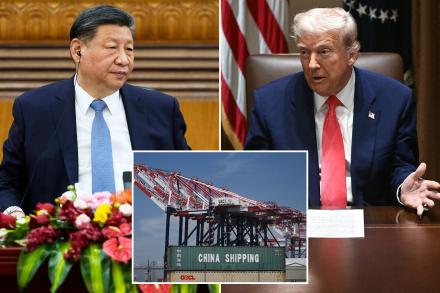The trade war between China and the U.S. is getting even more serious. On April 11, China announced it will raise taxes on American goods from an average of 84% to a massive 125%. This is China’s strongest move yet in response to U.S. tariffs.
President Xi Jinping said during a meeting with Spain’s Prime Minister that China is not afraid to fight back. Just days before this, the U.S. had already set tariffs of at least 145% on all goods coming from China. This tit-for-tat action means both countries are now charging huge taxes on each other’s products—something hard to imagine just a year ago.
Markets quickly reacted. In Europe, the Stoxx 600 index dropped about 1%. While U.S. markets looked like they might open a bit higher, investors are still very nervous.
American farmers could be hit hard. China used to buy a lot of U.S. farm products like soybeans and pork. Now, with China closing its market to these imports, farmers—especially in states that support Trump—might lose billions of dollars. This could also create political problems.
The U.S. just reported that inflation was only 2.4% in March. But this doesn’t include the impact of the new tariffs. As businesses pay more to bring in goods, prices could rise soon, affecting everyday shoppers.
In Washington, many Republicans are stuck. Some don’t like tariffs, but most won’t speak out against Trump’s strong actions on China. A few are happy that Trump delayed higher tariffs on some other countries—but they worry about the damage to U.S. farmers.
Meanwhile, Europe is watching closely. Spain signed a deal to sell more pork to China. President Xi used the moment to ask Europe to join China in standing up to unfair trade actions.
French President Emmanuel Macron said the U.S. delay in raising tariffs could be a small chance to talk—but warned that Europe should be ready to protect its own people and industries too.







